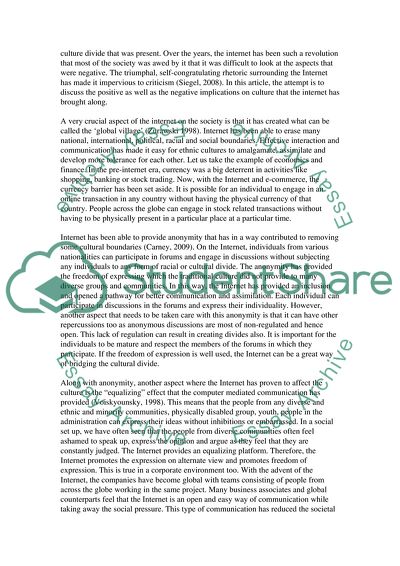Cite this document
(How Is the Internet Reshaping What We Mean by Culture Research Paper, n.d.)
How Is the Internet Reshaping What We Mean by Culture Research Paper. Retrieved from https://studentshare.org/culture/1744144-how-is-the-internet-reshaping-what-we-mean-by-culture-what-implications-does-the-internet-have-for-individuals-organizations-and-society
How Is the Internet Reshaping What We Mean by Culture Research Paper. Retrieved from https://studentshare.org/culture/1744144-how-is-the-internet-reshaping-what-we-mean-by-culture-what-implications-does-the-internet-have-for-individuals-organizations-and-society
(How Is the Internet Reshaping What We Mean by Culture Research Paper)
How Is the Internet Reshaping What We Mean by Culture Research Paper. https://studentshare.org/culture/1744144-how-is-the-internet-reshaping-what-we-mean-by-culture-what-implications-does-the-internet-have-for-individuals-organizations-and-society.
How Is the Internet Reshaping What We Mean by Culture Research Paper. https://studentshare.org/culture/1744144-how-is-the-internet-reshaping-what-we-mean-by-culture-what-implications-does-the-internet-have-for-individuals-organizations-and-society.
“How Is the Internet Reshaping What We Mean by Culture Research Paper”, n.d. https://studentshare.org/culture/1744144-how-is-the-internet-reshaping-what-we-mean-by-culture-what-implications-does-the-internet-have-for-individuals-organizations-and-society.


